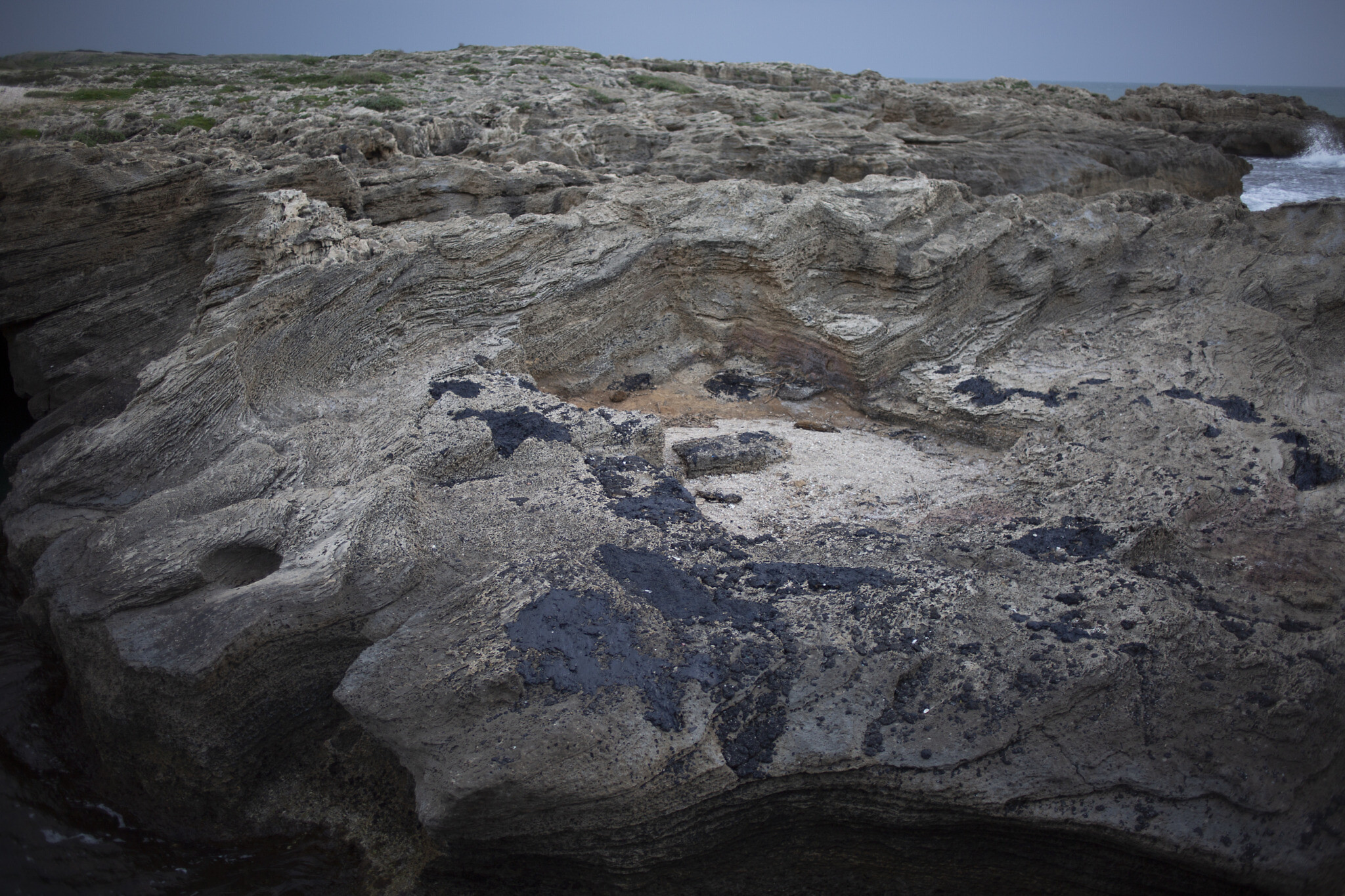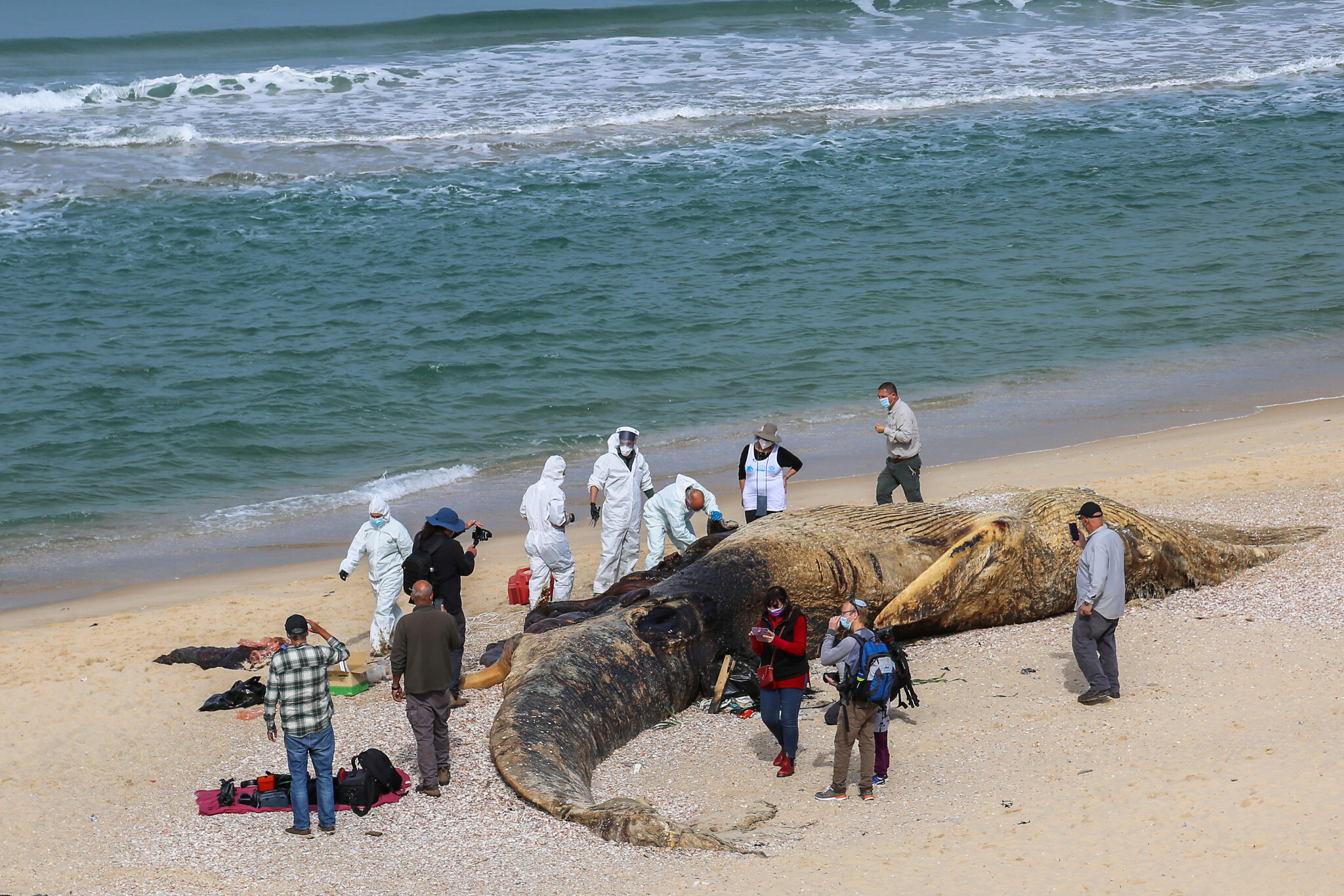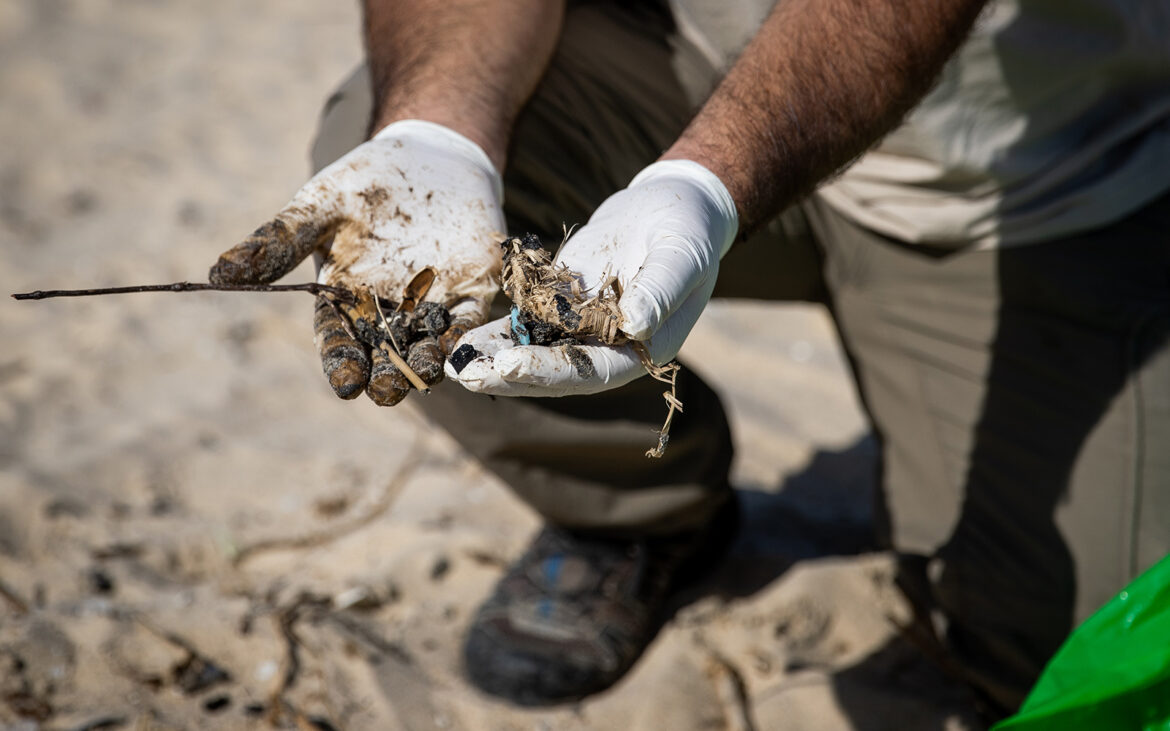The Health Ministry on Wednesday barred the sale of seafood from the Mediterranean Sea after a massive oil spill severely contaminated most of Israel’s coastline and killed wildlife.
The ban covers fish and other marine life sold for consumption. It went into effect immediately and will last until the Health Ministry issues a retraction.
The decision was made “in light of the environmental pollution in the Mediterranean Sea, which has been expressed, among other ways, in the amounts of tar found on the Mediterranean beaches in recent days,” the Health Ministry said.
The ruling was a precautionary measure and there was no definite evidence that eating the fish posed a danger. Samples of marine life had been sent to Agriculture Ministry laboratories to check for contaminants, the Health Ministry said.
Officials notified the fishing community and sellers of seafood.
Get The Times of Israel’s Daily Edition
by email and never miss our top stories
By signing up, you agree to the terms
Tar has over the past week washed up along 160 kilometers (100 miles) out of the country’s 195 kilometers of Mediterranean coastline, prompting the government to order Israelis away from the areas. The specific source of the spill is still under investigation, with several tankers under suspicion.
The Israel Nature and Parks Authority said on Wednesday evening that some 70 tons of tar and contaminated material have been scraped off and collected along Israel’s shores — from beaches, nature reserves and national parks — since efforts began to tackle last week’s oil spill disaster.
The worst of the pollution remains “on the rocky surfaces on the beaches,” where it is difficult to remove, it said. The sandy surfaces on most beaches are relatively clean, it said, although there are still considerable quantities of lumps and flakes of tar. The cleanup requires “filtering large areas of sand” — work that requires large teams, it said.
“The authority is trying to find effective mechanical and technological measures to grapple with the small lumps of tar, and more advanced measures to tackle the tar on rocky surfaces,” it added.
Some 2,000 INPA volunteers joined the cleanup Wednesday. “Tomorrow, about 200 medical and other staff from hospitals around the country are expected to join the groups of volunteers cleaning and rehabilitating the beaches, including medical teams who have been dealing with the coronavirus for the past year.”
הכירו את “רמזור החופים” של הים התיכון!
“רמזור החופים” הוא שילוב של מצב הזיהום בשטח והתקדמות פעולות הניקיון. חשוב לציין, שמצב ניקיון החופים משתנה וכי חופים שהיו נקיים היום, לא בהכרח יישארו כך מחר.
לרמזור החופים ארבע רמות >> pic.twitter.com/tYZS7M47dU
— המשרד להגנת הסביבה – Environmental Protection (@SvivaMinistry) February 24, 2021
The Environmental Protection Ministry published a “traffic light” (Hebrew) guide for the progress of the cleanup at the beaches, with a map showing where the tar pollution was “very light” (green), via yellow and orange, to red, where pollution is heavy and the cleanup operation has yet to begin or still has considerable work to do.
In all, the ministry said earlier Wednesday, it has begun to collect and safely dispose of what it estimated are 1,200 tons of tar and contaminated materials from the spill. These will be taken to biological treatment facilities or appropriate landfill sites, the ministry said in a statement. It specified that it was removing and safely disposing of the tar, and materials contaminated by the spill, including “sand and solid waste such as plastic, wood, algae and shells.”

Tar is stuck on rocks after an oil spill in the Mediterranean Sea, at Tel-Dor Nature Reserve, in Nahsholim, Israel, Tuesday, Feb. 23, 2021. (AP Photo/Ariel Schalit)
The volunteers have been assisted by organized groups from bodies such as the military and the police. The work is being coordinated with local authorities, the INPAy and the nonprofit Ecoocean marine protection group, the ministry said.
The collection and disposal operation is being carried out by the ministry-run Environmental Services Company, which specializes in hazardous waste removal.
On Tuesday the government approved NIS 45 million ($13.8 million) for the cleanup operation. The cash is coming from the state’s Fund for the Prevention of Marine Pollution, created some 40 years ago to pay for cleanups as well as equipment and training to respond to oil spills.
Israelis this week were told to stay away from the beaches all along the Mediterranean coast, from Rosh Hanikra in the north to Ashkelon in the south, after what some experts have called the worst environmental disaster to hit the country’s beaches in decades.
No official estimate has yet been provided regarding when the beaches will again be deemed safe.
Reports of the pollution emerged last Thursday when a dead 17-meter (56-foot) baby fin whale washed up on Israel’s southern coast, along with other wildlife.

Marine veterinarians take samples from a 17-meter long fin whale washed ashore on the Nitzanim beach, near the city of Ashkelon, February 21, 2021. (Flash90)
The cleanup came as operators of a Greek-flagged ship on Wednesday rejected Israeli media reports suggesting the vessel was the cause of the tar spill.
A gag order on the investigation into the probe was partially lifted Tuesday, with the Haifa Magistrate’s Court issuing a much-reduced set of instructions.
Referring to what they called “the unfounded and inaccurate allegation posted in the media” operators of the Minerva Helen told The Times of Israel in an email that the ship was empty of any cargo when it was recently in the area where the suspected spill began.
Operators said they will “cooperate with any relevant authority in relation” to the incident and provided a history of the ship’s movements during the relevant period.
From February 4 until February 11 the ship “was drifting offshore Port Said, Egypt, awaiting voyage orders in empty condition, without any cargo on board,” operators said.
“Drifting while awaiting orders is a routine practice for commercial vessels,” the email said.
Operators added that on February 22 the ship was inspected by Spanish authorities and found to be sound.
Sue Surkes contributed to this report.
Is The Times of Israel important to you?
If so, we have a request.
Every day, even during war, our journalists keep you abreast of the most important developments that merit your attention. Millions of people rely on ToI for fast, fair and free coverage of Israel and the Jewish world.
We care about Israel – and we know you do too. So today, we have an ask: show your appreciation for our work by joining The Times of Israel Community, an exclusive group for readers like you who appreciate and financially support our work.
Yes, I’ll give
Yes, I’ll give
Already a member? Sign in to stop seeing this
You appreciate our journalism

You clearly find our careful reporting valuable, in a time when facts are often distorted and news coverage often lacks context.
Your support is essential to continue our work. We want to continue delivering the professional journalism you value, even as the demands on our newsroom have grown dramatically since October 7.
So today, please consider joining our reader support group, The Times of Israel Community. For as little as $6 a month you’ll become our partners while enjoying The Times of Israel AD-FREE, as well as accessing exclusive content available only to Times of Israel Community members.
Thank you,
David Horovitz, Founding Editor of The Times of Israel
Join Our Community
Join Our Community
Already a member? Sign in to stop seeing this

